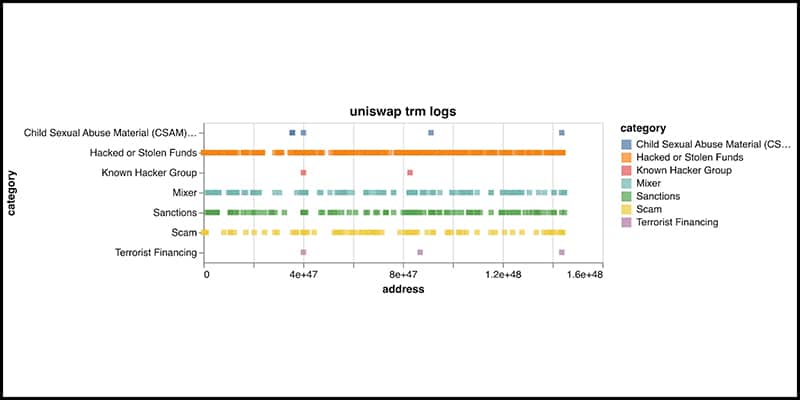Decentralized exchange Uniswap with blockchain analytics firm TRM Labs, has blocked 253 crypto addresses in four months. Currently, any address that interacts with Uniswap is checked automatically for seven types of illegal activity.
Jordan Frankfurt, a Uniswap software engineer, published the data, and Banteg, a Yearn Finance core developer, published a Twitter thread analyzing seven categories that contribute to risk factors and saved it on GitHub.
Frankfurt stated that he voluntarily wrote the “front/back end implementation of our TRM code” to avoid relying on manually hardcoded block lists.
It initially blocked addresses that were indirectly associated with sanctioned addresses, but this was scaled back. Now it only blocks addresses that were sanctioned or have directly received hacked or stolen funds.
The four major categories are stolen funds, funds from a transaction mixer, sanctioned addresses, and funds from a known scam. The remaining categories are child sexual abuse material, funds from known hacker groups, and funds used for terrorist financing.

“There are seven categories which contribute to risk factors and two risk levels, high and severe. Both ownership and being a counterparty of a “bad” address are checked and can contribute to blocking,” Banteg wrote.
This is the first time Uniswap has disclosed data related to wallet blacklisting. These stolen funds were associated with transaction mixing services such as Tornado Cash, which was sanctioned by the US Treasury.
253 addresses have been blacklisted, with 30 of them being ENS (Ethereum Name Service) domain names.
The news comes after the Bitcoin mixing service CoinJoin, which is part of the privacy-focused Wasabi Wallet, banned bitcoin linked to illicit activity.






